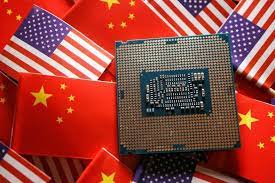China’s Metal Curbs, risk backfire, Gallium and Germanium, Background,
China’s recent Metal Curbs decision to control the export of two key metals, gallium and germanium, is a sign that the country is willing to use its economic power to retaliate against moves by the United States, Japan, and Europe to cut Beijing off from advanced technology. However, the move could backfire, as the G-7 countries look for alternatives to Chinese supplies.

Gallium and germanium are essential for the production of chips, electric cars, and telecommunications equipment. China is the world’s leading producer of both metals, and the new export licensing system could make it more difficult for foreign companies to get their hands on them.

This has already led to concerns about rising prices for these metals, which could have a knock-on effect on inflation. The G-7 countries are also concerned that China’s move could disrupt the global supply chain for these critical materials.
In response to China’s move, the G-7 countries have pledged to work together to find alternatives to Chinese supplies of gallium and germanium. They have also called on China to reverse its decision, arguing that it is harmful to the global economy.
It is too early to say whether China’s metal curbs will backfire. However, the G-7 countries’ response suggests that they are not going to take the move lying down. If China does not reverse its decision, it could face increasing pressure from the G-7 countries and other major economies.
Background of the matter
China has a long history of using its economic power to retaliate against foreign countries. In recent years, the country has imposed tariffs on imports from the United States, Japan, and Europe in response to these countries’ trade policies.

The new export licensing system for gallium and germanium is the latest example of China’s willingness to use its economic power to achieve its political goals. The move is seen as a way to pressure the G-7 countries to ease their restrictions on exports of advanced technology to China.
It is unclear whether China’s metal curbs will be effective in achieving this goal. However, the move has certainly raised tensions between China and the G-7 countries. It remains to be seen whether the two sides will be able to find a way to resolve this dispute.
Conclusion
China’s metal curbs risk backfiring as the G-7 countries look for alternatives to Chinese supplies. This could lead to higher prices for metals, which could have a knock-on effect on inflation. The G-7 countries have pledged to work together to find alternatives to Chinese supplies, and they have called on China to reverse its decision. It is too early to say whether China’s metal curbs will backfire, but the G-7 countries’ response suggests that they are not going to take the move lying down.
Frequently Asked Questions:
Q 1. What are gallium and germanium?
A. Gallium and germanium are two rare metals that are essential for the production of chips, electric cars, and telecommunications equipment. China is the world’s leading producer of both metals.
Q 2. Why did China impose export controls on gallium and germanium?
A. China says that export controls are necessary to protect national security. However, many experts believe that the move is a way for China to retaliate against the United States, Japan, and Europe for their restrictions on exports of advanced technology to China.
Q 3. What are the implications of China’s metal curbs?
A. The implications of China’s metal curbs are still uncertain. However, there are concerns that the move could lead to higher prices for these metals, which could have a knock-on effect on inflation. The G-7 countries are also concerned that China’s move could disrupt the global supply chain for these critical materials.
Q 4. What are the G-7 countries doing in response to China’s metal curbs?
A. The G-7 countries have pledged to work together to find alternatives to Chinese supplies of gallium and germanium. They have also called on China to reverse its decision, arguing that it is harmful to the global economy.
Q 5. What is the future of China’s metal curbs?
A. It is too early to say what the future holds for China’s metal curbs. However, the G-7 countries’ response suggests that they are not going to take the move lying down. If China does not reverse its decision, it could face increasing pressure from the G-7 countries and other major economies.

